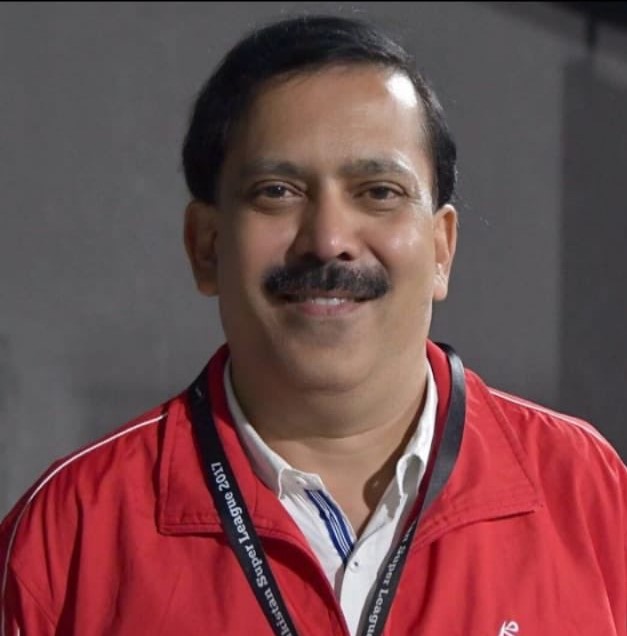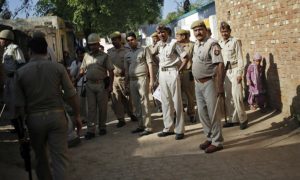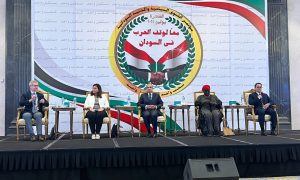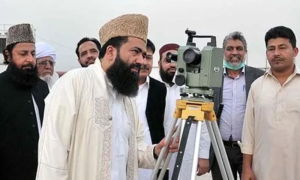To be the head of the country’s most popular sport is a position of authority and power. It is the most sought-after status a lot of former players, technocrats, bureaucrats and diplomats desire for as anyone overnight can become someone. Everybody wants to be in that position without actually understanding or realizing the rigours or demands of this prestigious and highly-responsible position. Lt Gen (retd) Tauqeer Zia, at his departure presser, summed up the PCB chairman’s role very nicely when he said: The PCB is not a bed of roses!
Little wonder then that there is always a tussle to get the top post. Behind the scenes, people with ambitions to rule or administer the game are active and lobbying for the same.
The latest tussle is between the incumbent Najam Sethi, wishing to get elected for a second time as Pakistan Cricket Board (PCB) chairman, and Zaka Ashraf who held the position in the past. Both had much publicised tussle for the PCB’s top post in 2014. The sordid episode finally ended in Sethi’s favour when the then Prime Minister Nawaz Sharif removed Ashraf and appointed a committee with Sethi as its head.
In the latest episode, Sethi was given a 120-day period to restore the 2014 PCB constitution as head of the management committee as well as hold elections for the regional bodies and PCB chairman’s position. Once that period was over on April 21, Sethi was given an extension until June 20 although the Inter-Provincial Committee (IPC) supported a 15-day extension.
It is important to understand that the PCB is an autonomous body which reports only to the Prime Minister, not even the Cabinet. The IPC role is minimal – it serves as a bridge between the PCB and the Patron on administrative matters. In this background, the IPC’s unhappiness in April over the two-month extension was misplaced and irrational.
Now, IPC Minister Ihsan Mazari, despite knowing his ministry has no say in the PCB affairs except serving as a courier company, has fueled a row by pronouncing that since the ministry comes under Pakistan People’s Party (PPP) – one of the leading political parties in the Pakistan Democratic Movement (PDM)– so the ruler of the game should come from his party. He named Zaka Ashraf as the party’s candidate.
Mazari categorically declared: “The tenure of PCB Management Committee will expire on June 20 and no further extension will be granted. The ministry will not send any extension summary to the PM.”
From the PCB constitution as well as rules of business, it is evident that Mr Mazari has no say in the two Patron nominees, let alone pronouncing Zaka as the next chairman.
STRUCTURE OF PCB:
“It’s quizzical, how can we deal with different people in such a short time,” said one director of the International Cricket Council (ICC) at the ICC Board meeting in 2014 in Dubai. There were guffaws in the room as PCB became a laughing stock in an otherwise sombre environment.
Yes, this has been the case with the PCB.
Unfamiliar with the norms to attend an ICC Board meeting, one PCB chairman refused to accompany other directors in the same vehicle, preferring to travel on his own. He ended up coming some 30 minutes late to the meeting and faced the ire of outspoken Giles Clarke, former ECB chairman during the meeting.
During a post-match ceremony, a PCB chief even asked: “why do we give one man of the match, we should give two to three men of the match awards,” much to the amusement of those who heard it.
That’s what happens when you have an unsuitable candidate at the helm of affairs. To be a PCB chief is a privilege, but it has been made a right. This is the power of the government in Pakistan which has become a bane and not a boon.
Since cricket is the most popular sport – the only entertainment and success-achieving sport – the head of the country’s board is lionised as one of the four most important office holders in the country. That is the reason behind every government appointing their own man in charge of the PCB. Even when the PCB chairman was elected by a governing council, the government’s clout and influence was inherent. As soon as a new government takes charge, we see a change in the PCB administration.
So, it was inevitable that when Imran Khan was voted out as Pakistan Prime Minister in April 2022 that Ramiz Raja would be removed as PCB chairman. New Prime Minister Shahbaz Sharif denotified Raja and appointed a management committee under Sethi.
Despite not having a cricketing background, Sethi is praised for his decision-making. He launched the Pakistan Super League (PSL) in 2016 despite scepticism and fears that it will not take off. Eight editions of PSL have successfully been held and the league is touted as the second most followed T20 franchise competition in the world. Like a sharp and judicious administrator, Sethi gathers information from all quarters, assesses them and takes a decision. He dealt with the issue of national team captaincy similarly, snubbing the calls for separate captains for all three formats. That he named Babar Azam as the captain for all formats shows good judgement.
In his second tenure Sethi has been dealing with a myriad of problems.
The structure of domestic cricket was left in a state of crisis by the abolition of private departments by the previous government. That had caused hundreds of sportsmen to lose their jobs. The restoration of departments looked tough but with the help of the government the matter has been successfully dealt with. Around 40 private departments have shown willingness to feature across formats of the domestic events.
That’s some achievement!
Notwithstanding the problems and controversies in the elections of the 16 regions, holding fair and free elections – be it at any level – is the toughest task in Pakistan as a loser never gracefully accepts defeat. So, these elections at the regional level are made contentious.
Sethi has also dealt with sensitive issues with cricket world’s super power, India.
The issues were borne out in the wake of Indian Board’s refusal to send their team for Asia Cup which Pakistan was due to host. The BCCI wanted the event to be hosted at a neutral venue, preferably Sri Lanka. In a tit-for-tat, Sethi threatened Pakistan team’s pull out from the 2023 World Cup due to be held across the border. You agree or disagree, Sethi dealt with the issue with a forthright approach.
In order to save Pakistan’s hosting rights, Sethi showed flexibility by presenting a hybrid model on the hosting of Asia Cup: four matches in Pakistan and the rest at a neutral venue.
It needed ICC officials — chairman Greg Barclay and CEO Geoff Allardice — to pacify things by touring Pakistan and holding meetings.
As a result, the Asia Cup hybrid model is about to be approved but Pakistan’s participation or playing World Cup matches in India still hangs in the balance.
With Sethi dealing with such a delicate issue a change in the PCB will hurt Pakistan’s cause. PM Sharif must resist that change and convince their coalition party to wait until the national election.
Any change now will once again make PCB a laughing stock. Prime Minister Sharif as PCB Patron needs to step in and avoid the scenario in which Pakistan cricket’s credibility and reputation receives an irreparable dent.























